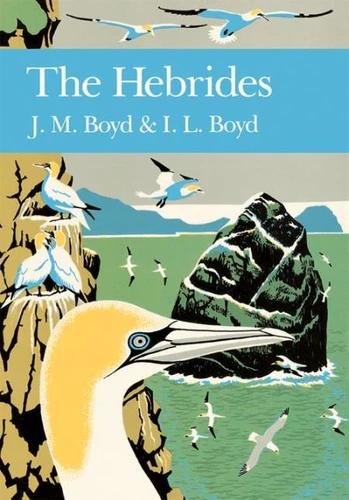The Hebrides
Par : ,Formats :
Disponible dans votre compte client Decitre ou Furet du Nord dès validation de votre commande. Le format ePub protégé est :
- Compatible avec une lecture sur My Vivlio (smartphone, tablette, ordinateur)
- Compatible avec une lecture sur liseuses Vivlio
- Pour les liseuses autres que Vivlio, vous devez utiliser le logiciel Adobe Digital Edition. Non compatible avec la lecture sur les liseuses Kindle, Remarkable et Sony
- Non compatible avec un achat hors France métropolitaine
 , qui est-ce ?
, qui est-ce ?Notre partenaire de plateforme de lecture numérique où vous retrouverez l'ensemble de vos ebooks gratuitement
Pour en savoir plus sur nos ebooks, consultez notre aide en ligne ici
- Nombre de pages416
- FormatePub
- ISBN978-0-00-740663-0
- EAN9780007406630
- Date de parution18/04/2019
- Protection num.Adobe DRM
- Infos supplémentairesepub
- ÉditeurWilliam Collins
Résumé
A complete natural history of the Hebrides - an area of great natural beauty, which draws back thousands of visitors year after year to its wonderful scenery and abundant wildlife.
The Hebrides is an area of great natural beauty, which draws back thousands of visitors year after year to its wonderful scenery and abundant wildlife. Yet, until now, there has been no up-to-date, complete natural history for its many followers to refer to.
This title fills the gap. In a style at once both readable and informative the Drs. J. M. and I. L. Boyd cover every aspect of the islands. Starting with a clear explanation of the geology, climate and hydrography, they move on to a fascinating description of the many varies habitats, from the sea and inland waters through to woodlands and moor and hill. Part II deals with the characteristics of individual islands and their species, while in part III the islands are discussed in the context of their relation to people - starting with the old naturalists, and ending on a topical note with the current interest in conservation.
This title fills the gap. In a style at once both readable and informative the Drs. J. M. and I. L. Boyd cover every aspect of the islands. Starting with a clear explanation of the geology, climate and hydrography, they move on to a fascinating description of the many varies habitats, from the sea and inland waters through to woodlands and moor and hill. Part II deals with the characteristics of individual islands and their species, while in part III the islands are discussed in the context of their relation to people - starting with the old naturalists, and ending on a topical note with the current interest in conservation.
A complete natural history of the Hebrides - an area of great natural beauty, which draws back thousands of visitors year after year to its wonderful scenery and abundant wildlife.
The Hebrides is an area of great natural beauty, which draws back thousands of visitors year after year to its wonderful scenery and abundant wildlife. Yet, until now, there has been no up-to-date, complete natural history for its many followers to refer to.
This title fills the gap. In a style at once both readable and informative the Drs. J. M. and I. L. Boyd cover every aspect of the islands. Starting with a clear explanation of the geology, climate and hydrography, they move on to a fascinating description of the many varies habitats, from the sea and inland waters through to woodlands and moor and hill. Part II deals with the characteristics of individual islands and their species, while in part III the islands are discussed in the context of their relation to people - starting with the old naturalists, and ending on a topical note with the current interest in conservation.
This title fills the gap. In a style at once both readable and informative the Drs. J. M. and I. L. Boyd cover every aspect of the islands. Starting with a clear explanation of the geology, climate and hydrography, they move on to a fascinating description of the many varies habitats, from the sea and inland waters through to woodlands and moor and hill. Part II deals with the characteristics of individual islands and their species, while in part III the islands are discussed in the context of their relation to people - starting with the old naturalists, and ending on a topical note with the current interest in conservation.



